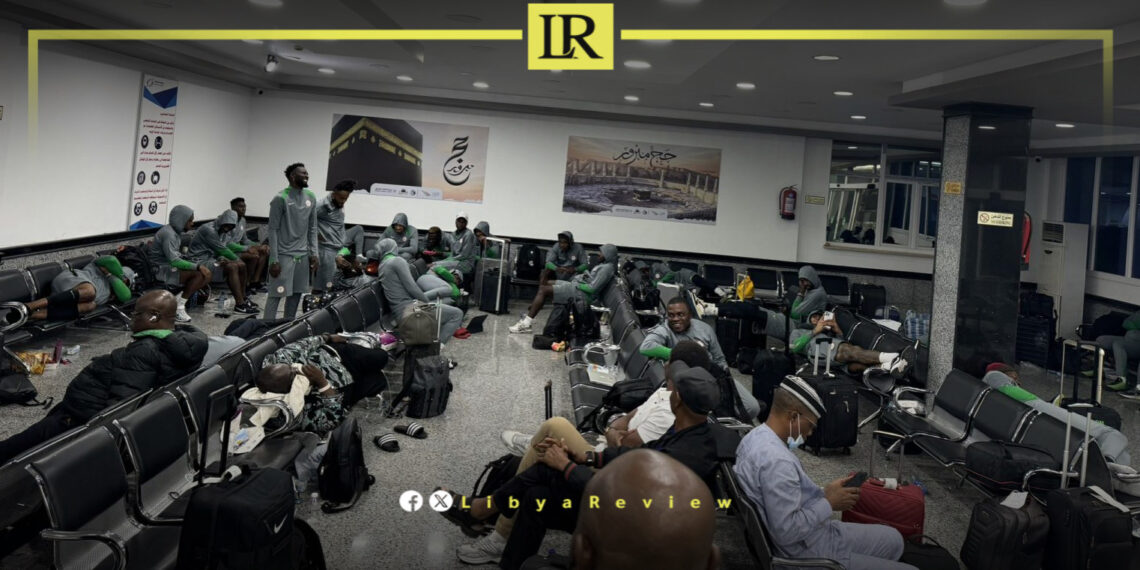On Sunday, the Libyan Football Federation (LFF) filed an official appeal against the recent decision by the Confederation of African Football (CAF) to award Nigeria a 3-0 victory in a disrupted Africa Cup of Nations (AFCON) qualifier, originally scheduled for October 15 in Benina, Libya. CAF’s ruling not only awarded Nigeria three points but also imposed a $50,000 fine on Libya, citing logistical failures that allegedly violated competition regulations.
Libya has described the decision as “unfair” and enlisted Tunisian lawyer Ali Abbas to lead the appeal, aiming to overturn the sanctions and protect the country’s standing in the Group D qualifiers for the 2025 AFCON finals in Morocco.
The controversy began when Nigeria’s Super Eagles faced severe travel difficulties en route to the match. Their flight was diverted to Al Abraq International Airport, located 300 kilometers from the intended destination, Benghazi.
The team spent hours waiting at the airport under poor conditions, with inadequate food, water, and facilities. After enduring a 20-hour ordeal, Nigeria’s players abandoned the match and returned home, prompting the Nigerian Football Federation (NFF) to lodge a formal complaint with CAF.
Following an investigation, CAF’s disciplinary committee, chaired by Ousmane Kane, ruled that Libya had failed to meet its hosting responsibilities. The decision cited Article 31 of the AFCON Regulations and Articles 82 and 151 of the CAF Disciplinary Code, declaring Libya had forfeited the match with a 3-0 scoreline awarded to Nigeria. The verdict places Nigeria closer to qualifying for the 2025 AFCON finals, while Libya remains stuck at the bottom of Group D with just one point, leaving their qualification hopes in serious jeopardy.
Libya’s appeal asserts that the logistical issues Nigeria encountered were beyond the control of the Libyan Football Federation. The LFF insists that airport management and regional security challenges played a significant role in the disruptions, arguing that the sanctions were overly harsh and disproportionate to the circumstances.
The LFF’s legal team is focused on proving that Libya acted in good faith and that the situation did not warrant such severe penalties. Libya also argues that awarding a forfeit undermines the integrity of the qualifiers and sets a dangerous precedent for how travel disruptions will be handled in the future.
If CAF upholds the original ruling, Nigeria will be in a strong position to qualify for the 2025 AFCON finals, significantly tightening their grip on Group D. Meanwhile, Libya’s campaign will likely end prematurely, a blow to a team that has struggled with political instability and logistical challenges in recent years.


